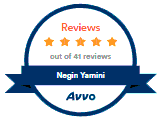In our American democracy, we agree to keeping as many records related to law and court cases public in an effort to promote transparency, helping to ensure our democracy. Your criminal record is an important document precisely because it is part of the public record.
Unfortunately, for people with criminal records, these public records mean any person in the can look up a case and see what negative activities you’ve been involved in, even if the action took place a long time ago or was an accident or mistake, or even a wrongful arrest or conviction. Fortunately, adults with criminal records do have ways to clear their record. In California, the two most common ways to clear your criminal record are to seek an expungement or petition to seal a record.
Record Expungement Attorney is a team of lawyers and legal professionals who specialize in helping Californians clear their records. This article breaks down the processes of expunging and sealing an adult criminal record: what is the same and what is different. Though they both help mitigate your criminal record, the two terms have separate processes, rules, and results.
Use this article as information when beginning your criminal record clearing. Do not use this information as legal counsel, as only an attorney with knowledge of your case can provide such advice.
WHAT IS INCLUDED ON AN ADULT CRIMINAL RECORD?
A criminal record is simply a long-running document, or series of documents, that is kept about an individual’s arrests and convictions. Criminal records can be kept at the federal, state, and local levels. In the State of California, cities and counties are the most likely places for storing criminal records.
Your criminal record begins the moment you are arrested for the first time. With an arrest, you will likely be fingerprinted and photographed, and details related to the arrest will be documented. An arrest generally results in a few scenarios:
- You are arrested but no charges are brought, so you are released.
- You are arrested and charged with a crime, but the court dismisses your case.
- You are arrested, charged, and tried by court, and you are either acquitted (determined not guilty – different from innocent) or convicted (found guilty).
This information becomes part of the public record, so any person willing to search the case document can understand the details of the case. Moreover, a criminal background check can include any number of cases you’ve been involved in. Common information included in a criminal record beyond your name, aliases, physical description, and current or past addresses are the type(s) of crime and the dates of related arrest or convictions, as well as any outstanding arrest warrants against you. More personal information such as your fingerprints, biometric data, and photographs (mugshots) are also commonly included.
Your record grows as additional arrests or convictions occur. (Small infractions such as traffic violations do not appear on your record as long as you’ve paid or otherwise settled them.) An adult criminal record can have a single arrest that resulted in no action or several arrests and convictions. Depending on your situation, your reasons, and your convictions, you may consider record clearing. Record clearing is the informal term applied to a variety of processes that help you clean up your criminal record and improve your reputation.
Clearing your record only applies to the jurisdiction that oversees the case(s) involved. For instance, if you are convicted of a crime in California and Oregon and you obtain an expungement in California, only the crime that took place in and was prosecuted by Californian courts is part of such an expungement.
BENEFITS OF CLEARING YOUR ADULT CRIMINAL RECORD
The biggest benefit in clearing your adult criminal record is improving your opportunities. Many people who are arrested or convicted of a crime quickly realize how any sort of criminal record can hinder the opportunities they seek, whether job, housing, or financially related or more personally related to their own reputation.
In many instances, such as applying for a job, a home or apartment, or a bank loan or mortgage, your criminal background record is checked before the company or agency can extend an offer. Many companies, particularly those looking to hire, automatically cast aside anyone with an adult criminal record, even if the record consisted of an arrest with no charge or no conviction.
Because most records are stored digitally today, often searchable by online database, it is easier for people in other jurisdictions to see your record. To that end, clearing your criminal record could be a wise move even if you are not currently seeking any changes or opportunities in life.
DO I NEED TO WORRY ABOUT JUVENILE CRIMINAL RECORDS?
In the State of California, your juvenile criminal record and your adult criminal record are the same thing, but you do have ways to clear a juvenile record.
Any crimes you were allegedly involved in or convicted of before the age of 18 initiates your juvenile criminal record. In California, once you turn 18 years old, you can petition the court to seal your juvenile records. While many young adults pursue this court order, the courts neither automatically nor immediately seal your record upon your 18th birthday. Importantly, five years after your juvenile records are sealed, the district will completely destroy them.
The process to seal juvenile records is to complete a form and file it with the county in which you were convicted. You may need to include photocopies of certain documents or serve copies to additional government agencies. Typically, there is no fee. If you were convicted of a crime in more than one county, you need to contact each county and petition them separately.
If your juvenile crime sentencing involved attending the California Youth Authority and you graduated from it, your juvenile records are dismissed upon your graduation. However, as a dismissal is different from sealing your records, you may still petition to seal your juvenile records, with a complete record destruction five years later. Should you opt against a petition to seal your records, your juvenile record stays attached to your criminal record until you turn 38 years old. At that point, the courts will destroy your juvenile records.
EXPUNGING VERSUS SEALING RECORDS
When considering your criminal record, know that the State of California is generally quite progressive in allowing people with records, whether convicted or not, to clear their records.
Record clearing can mean a lot of things, but when it comes to adult criminal records, there are generally two ways to clear your record: record sealing and expungement.
Though these terms are often used interchangeably and both require a court order, the practices have different processes and outcomes on your record. Many crimes, from infractions to felonies, may be eligible for record sealing or record expunging, but it often depends on the facts of your case. A few particularly severe crimes, especially related to child pornography and child sex acts, are not eligible for record clearing processes.
SEALING YOUR ADULT CRIMINAL RECORD
Sealing your adult criminal record removes all or a portion of the case record from the public view.
Whether your criminal record includes actual conviction(s) or arrests that resulted in no charge or a no guilty decision, the record related to these actions are part of the general public record. This means that anyone can request to view this record. Historically, most of these records were stored in the Superior County court or the State’s Department of Justice in Sacramento. Today, it is more likely that your records are stored digitally, accessible by electronic database search.
Should a person look up the case record, it will show the outcome: whether you were convicted (found guilty) and of what crimes. Even if you were only arrested and later released, that arrest remains on your record, and people looking it up – perhaps a potential employer performing a criminal background check on you – are likely to be dismayed or dissuaded by that.
If you’ve applied for and won a record seal by the court, the record in question is henceforth removed from the public view. If the entire record is determined to be sealed, per your request, then the entire record cannot be viewed except by those authorized to, such as persons within the court or people who are a party to the case, whether the defendant or the prosecution. If only certain parts of the record are sealed, the rest of the record will still be available to the general public, with the specified parts redacted from the overall document.
In future instances, any person who cannot view the sealed record would have to petition the court to unseal, or open, the records.
A petition to seal your record is often the primary step in clearing your record. Depending on your situation, you can also pursue expungement.
EXPUNGING, OR DISMISSING, YOUR ADULT CRIMINAL RECORD
Expunging your record is not the same thing as record sealing. Expunging a record is a process that takes place after your conviction in order to dismiss your conviction from public view. (It is not an option for a no-conviction arrest.) This means that if someone searches your criminal background, they will set that you were involved in a case, but that any decision related to the case has been “set aside” or dismissed.
While the decision related to your case is dismissed from the public view, the entire conviction itself is not erased from your record. Indeed, part of the process of obtaining an expunged, or dismissed, record is to fully complete any sentencing that was part of your conviction. Furthermore, your conviction can still be used to determine sentencing if you commit a future crime: if the expunged conviction was a first offense, and you later commit a second offense, the first offense can help inform your fine, jail or prison time, and restitution or probation plans regardless of the first-offense expungement.
An expungement is a more severe and complicated process than sealing your record as it can have wider implications, such as paving the way towards a certificate of rehabilitation. If you do pursue an expungement of a conviction and the court sides against expungement, you may still petition the court to remove the records from the public view with a record seal.
ADDITIONAL RECORD CLEARING PROCESSES
The State of California offers two additional processes that can further along your record clearing.
Once you have obtained an expungement, you may apply for a certificate of rehabilitation. Commonly known as a COR, this can benefit you and clean up your record in its own right. A COR is also the next step in achieving a full Governor’s Pardon for your crime.
CERTIFICATE OF REHABILITATION
If you have successfully obtained an expungement for a particular case, you may be eligible for a certificate of rehabilitation. This COR is another court order which declares someone with a previous criminal conviction as officially rehabilitated. This rehabilitation can restore several rights that were lost as a result of your conviction (typically related to felony convictions), such as the right to vote and perhaps the right to own or use a firearm. Importantly, the COR also means that you are not obligated to disclose the conviction.
Obtaining a COR follows a specific process and typically requires a period of waiting up to several years after your expungement, or dismissal, was ordered by the court.
GOVERNOR’S PARDON
Once you obtain a COR, the certificate of rehabilitation automatically recommends you to the State Governor of California for a full pardon of the crime in question. Governor’s pardons are exceedingly rare, so while this is the ultimate step in clearing your record, it is an unlikely one. Fortunately, most, if not all, of your rights are likely restored upon completing any sentencing related to your conviction.
Record Expungement Attorney is located in Riverside, California. We help people in Riverside County and across the wider Inland Empire to clear their records and improve their overall life opportunities. Learn how you can begin clearing your adult criminal record – contact Record Expungement Attorney today at 951-916-9248.









